Lately I’ve had several casual conversations with colleagues and friends who are about to finish their undergraduate degree. Naturally, professors suggest they continue with their graduate education. Here’s what a graduate degree represents in my experience, but before that, should you even be thinking about it in the first place?
To be or not to be, that is the question
Being unsure (or being too sure) about doing a graduate degree are signs of danger. If you are unsure you may end up doing this as a last resort, if you are too sure, you may have idealized what a graduate degree represents and requires. A lot of people (including myself) do not think of pursuing graduate studies until something unexpected throws you into the opportunity that eventually leads you there. For those of you who are actually planning on it, here are some things to consider.

1. It will require writing, most likely, lots of it. You see, doing research is as important as letting the world know you are doing it. You must be willing to write. Now, don’t be too scared, most research articles you will write, and even your thesis is not so different from undergraduate (long-term) projects or final reports. The standards and stakes might be higher, but nothing you can’t handle with a bit of practice. Also, remember that your goal is to become the expert, the more you get into this, the easier it becomes, the more credibility you gain, the faster you can write. Your question here should not be if you can do it, but rather if you are willing to. If you want to hear me rant about writing research papers check this out.
2. If you think you are underqualified for graduate research positions, you are right. If you think you don’t know enough about the research topics or what you are getting into, you are right. If you feel clueless, lost, and like nothing makes sense, it’s because it doesn’t, and again, you are right. Being afraid of working in research is perfectly normal; especially if it’s the first time you’ve worked with a research group. These people have been doing this for a while, and words like “floccinaucinihilipilification” flourish and embellish what would otherwise be regular human speech. The point to take here is that you don’t know anything when you join a research group, but nobody (should) expect you to. The main idea is to learn on your way. Sure, make an effort, learn as fast as you can, but don’t let your self-esteem drop to the floor. The people who are running the research group had to start somewhere too, they were not born experts and they should understand this point (emphasis on should).
3. If curiosity is the mother of invention, then it is also the sibling of research. A graduate degree means you will have to conduct research. Research means that you will need to come up with research questions. You don’t have to be curious about absolutely everything, but the casual what-if inquiry in your daily life means you are on the right track. When working on a graduate degree it is equally important to pose the question than to actually resolve it. At some point you will notice the difference between creating tools and using tools to solve the research question. Chances are you will create your own tools, but they should only be a by-product of the research questions. If you prefer creating tools over solving questions then read this section twice and make sure you understand what you are getting into before committing to doing a graduate degree.
4. Most likely you are not a genius. That’s ok, most of us are not, and we just put a great deal of effort into it. Either way, be prepared to work with others. Getting a degree is no solo mission, it has to be done in co-op (but you get all the loot, and your colleagues get a name in an acknowledgments section that no one is going to read). This is another way of saying “if you sign here, you agree that you will have to work with other people, you will frequently have to ask for help, you might not like the way, the time, or the form in which that help is given to you, and you will still be fully responsible of the final product”.
There are several perks of being a graduate student too. If you are still reading this and were not discouraged by the above, then follow me to the next section, which deals on how to become a grad student.
What, who, where, how and when
So you are still considering a graduate degree but you have no idea of where to start. Well, I hope this serves as the right place. The first five things you should decide now are:
1. What do I want my research to be about?
Chances are you don’t know what research topics do you like. Here is a hint: if you did research as an undergrad and you loved it, continue on that path, if you are unsure, chances are there is something better so move on, if you didn’t like it at all, it doesn’t necessarily mean all research will be a burden, you just have to keep looking. If you never did research, look for questions and topics that you find interesting, read other people’s research, watch the news. If after looking everywhere you don’t like anything at all, abandon all hope or try again. If you found too many things, make a choice. If you can’t, don’t worry, you are still on the right track. It’s very common for new graduate students to try to solve all the world’s problems per semester, a habit you will lose after some disappointments. You can make an informed decision after you answer the next questions.
2. Who would I like to work with?
Choosing a mentor or advisor is more important than attending a specific college. All universities have their strengths and weaknesses and they change. Unless you are getting your degree just for the sake of being called a doctor (in which case you should at least make sure that your last name is Pepper, Who, House, Lecter, Frankenstein, Watson, Cooper, Zhivago or Octopus.), finding a research topic that you like and someone you’d be willing to work with for several years is more important. Just go ahead and check their websites, their research articles, and shoot them an email, but most importantly, if you want to have a real idea of what it’s like to work with them, contact their students and if possible get opposing opinions.
3. Where can I find both?
Your dream University should be the best match for both research and professor. Make sure the University has funding to sustain and promote your research. Other than that, avoid categorizing them based on how people perceive them (an Ivy league college is still a college, and a bad one for you if they don’t do what you’d like to do). Some small labs with very specific research topics in relatively unknown universities are often the most recognized worldwide. Find one of these and not only you’ll work with world class researchers; you will also have a greater chance of being accepted. Finally, make sure this is a lasting solution, you don’t want your mentor changing to another University halfway through your Ph.D. If this boat already sailed, here is some good advise on how to do damage control.
4. How do they conduct research?
You better know what they do if you are interested in applying for a graduate degree in a certain research institution, however, before making the final commitment, check how they conduct research. Are their methods ethical and their results reliable? We tend to assume as naïve undergrads that the world is perfect. It turns out that some people, even professors and researchers cheat. I talked to a friend who worked at a certain lab (anther college and another country in case you are curious) where the professor asked him to run some experiments. He did, and the results came exactly opposite from their hypothesis. The professor then changed the hypothesis to fit the results. I would assume this professor would have no problem in changing the results as well. Sometimes it isn’t that obvious (e.g. removing unfavorable results under the pretense that the data collection was flawed with that particular subject or test). Whatever you do, stay away from these people! You do not want to inherit that reputation.
5. When should you start?
Some people believe that they should spend some time in the workforce first and make their undergraduate degree count for something before pursuing higher education. Others believe that they should do it right after graduation, before they forget and lose their academic advantage. My suggestion: ignore everyone and start whenever you want! There is no shame in either option and both have their advantages and disadvantages. Start when you have figured out all the previous questions and you feel like it.
Living in the fast lane
Some colleges offer fast track program, meaning you can do your masters and Ph.D. at the same time, or that you can take graduate classes while being in your senior year. If they do offer this option, you might be harassed continuously into taking this path. If you do a fast track program, it’s more likely that you will go all the way to the Ph.D. or that they (college) won’t lose you after you finish your undergrad. It is a good option, but only under certain circumstances. Here is my list of do’s and don’ts.
Do take this option if you are 100% sure you want to get a graduate degree. If you are 95% sure, take it easy, one step at the time, figure out what it really is and what it really takes before accepting, otherwise you can end up wasting a lot of time and getting nothing out of it.
Do take this option only if you are sure about your research topic. If you know what you want to do for the next 5+ years and are confident that your vision won’t change too much during that time, use the fast track to get a head start!
Don’t do this if you are a full time undergraduate during your last semester. This can easily become overwhelming at this point in time. Do it only if it’s your last semester and you only have a class or two to worry about; otherwise, it can wait for next semester.
Don’t do the fast track if you are thinking of transferring to another college after you graduate. Chances are many classes wont transfer to other graduate degrees, and if they do, you might find yourself at a disadvantage because people might have greater expectations from you, when the focus and the way you acquired this knowledge might be very different than your new institution.
Don’t do the fast track if you’d like to do something between your masters and Ph.D. You won’t be able to, plus it defeats the purpose.
Industry, academia, entrepreneur, freelancer
Now let’s take a peek into the future. Assume you graduated with a Ph.D., what’s next? You have several options. Most people think that you can only chose between industry and academia, and that getting a Ph.D. will drive you into academia no matter what.
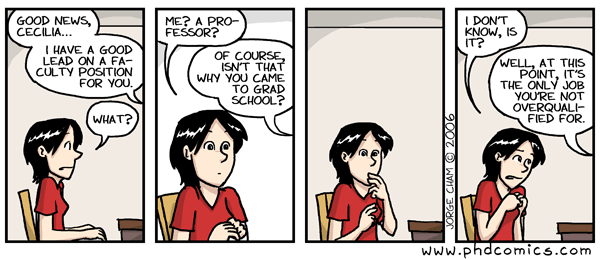
It depends. Large companies are more likely to hire Ph.D.’s and usually have large research divisions.
Academia implies being a faculty member, but this consists of much more than just teaching a class. Professors will be required to find funding, manage a research group, present their work, and even perform administrative duties for the department.
If you don’t fancy living the academic dream, you can always create your own startup as well, although a graduate degree is not necessarily required unless it’s literally rocket science.
Finally, most people overlook the huge profit you can make by freelancing, which would be mostly consulting. With a graduate degree and a decent portfolio people will be likely to believe and trust in what you say. Keep in mind that each option requires a different skillset which often includes thins you were not prepared for during your academic studies (e.g. management, teamwork, social skills, etc.).
What I am trying to say here is that a graduate degree opens many different doors that you might not have considered, then again, many of those doors can be opened without a graduate degree as well.
The Good, the Bad, the Ugly and the Lies
There are many misconceptions and stereotypes surrounding Ph.D. students. Some of them are true, some of them are twisted, and some of them are lies. I hope to clarify some of that here.
The Bad
1. Let’s start with the well-known cons. A master’s degree is much more profitable than a Ph.D. Think about it. Let’s say you finish your bachelors, and you are looking at a starting salary of 50k. With two years invested on your master’s degree (you can go as far as to assume you can work part time), your salary jumps to roughly 80k, with a Ph.D. let’s say you go to about 110k, however, you lost at least three years of a steady 80k income for a potential raise of 20 – 30k. Following this biased and roughly estimated logic, a Ph.D. might not be profitable. Now, if you fancy some statistically sound explanation check this out. Keep in mind that I speak from a computer scientist perspective, where compared to most careers, we have a pretty good chance at being employed with a relatively high pay. With that said, unfortunately, some careers are not worth it in terms of salary and job market. You can check the average salary in more detail here.
2. It takes (a long) time to graduate: a few years for your masters and about 6.7 years on average for your Ph.D. What would you do if your dream job comes knocking during year 3 or 4? What about starting a family, or moving to another place? Finishing a Ph.D. is as much about endurance as it is about commitment.
3. Remember those days as an undergrad when all you had to do was make the program compile and turn out some results? Well, as a Ph.D. you will eventually begin to conceptualize solutions for difficult problems and guide someone else to actually (in my case) type the code for those solutions. In other words, your undergrad colleagues can become more proficient at writing code. If what you like is making things (see section 1.3) then reconsider.

4. If you really need discouragement take a look at the 12 reasons why you shouldn’t do a Ph.D. . I personally think this is a rather biased and oversimplified description, but if you really want to look at every angle, go ahead.
The Ugly
There are three things I hate about graduate school, which seem to be true for most colleges: Bureaucracy, qualifiers/GRE, and surprise deadlines. In addition, you must learn to face rejection, and over qualification, which is sometimes the same thing.
1. Bureaucracy: You will constantly have to fill endless forms, not only to get accepted, but to report your degree progress, to choose your committee, to choose a research topic, to get a TA (teaching assistant) or RA (research assistant) appointment, to register, to get advised on what classes to take, to purchase a small yet indispensable item for the lab, to graduate, and trust me, the list goes on, especially if you are an international student. This will take away much of your priceless time. On top of it all, departments will often go about doing this in the least efficient way possible (really, would it kill them to have everything available online and not have you fill out the same form two or three times per semester and have you walk miles around campus to turn in a hardcopy?). I’ve gone as far as purchasing materials for the lab that I need for my research out of my own pocket because I value my time more than a certain money threshold (and I get to keep these materials for my own personal use and tinkering later on 🙂 ).
2. The qualifiers and the GRE. Where do we start? In case you haven’t heard of it yet, most graduate programs will ask you to present scores for the GRE. This is a test which can be described as long and boring. While preparing for the GRE (which I will admit I didn’t prepare much) I learned a few words that I have never used, seen or read in my life, and at this point in time I have completely forgotten about them. I also reviewed basic math, and had to read and write a few things. Some colleges put great value in your score while others don’t care. It’s still annoying, time consuming, expensive, and I am sure it renders less information than a simple oral interview with faculty members would, yet we still have to do it.
Now to the qualifiers… these are applied very differently depending on the university and program you are trying to get in, and apply only to Ph.D. students. In my case, it was a long series of tests of every major area in computer science. People get to prepare for them sometimes with over a year in advanced.
As much as I hate them, I can say that they were useful. It will wrap your head around everything you have learned at the same time, and it will help you connect things in a way you wouldn’t be able to if you hadn’t overloaded your brain’s RAM. However, this will take time, lots of time to prepare for. It will also cause a great deal of stress because if you fail one of the sections you will have to present them next year (great, another stressful year without progress, as if Ph.D.’s weren’t long already). I happened to pass them all on my first try, although I had to do some extra work in my weakest area, and I can tell you that most of the problems I won’t be able to solve again right now without a reference. Most importantly, this is something no one will even tell you about as a new grad student (probably so they don’t scare you away before you even start). I know of several people that wouldn’t have gotten into the degree if they had known about this beforehand, and it may be partially responsible for the 57% Ph.D. graduation rate. But enough about this, now you know. Moving on…
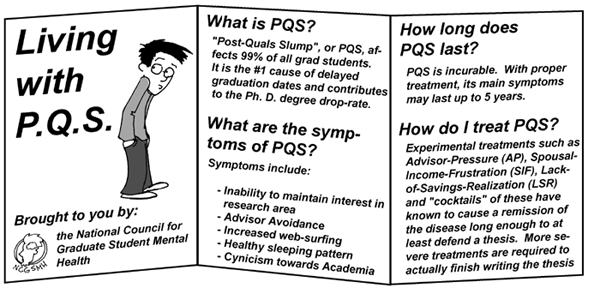
3. You will have a lot of deadlines, many of which you will learn about at the very last minute. “Did you fill out these forms? They were due yesterday! Now you will have to wait another two months to gt this processed (see bureaucracy).” “There is this conference, the deadline is in two days, let’s submit two 12 page research papers!” And as usual the list goes on. You learn to live with this, it’s unescapable and it will teach time management in a way you never dreamed of, but you might also end up sacrificing your plans over and over again (if you are the type of person that plans, otherwise, nothing to worry about!)
4. Rejection is something you will face eventually. Oh, you had the best grades during your undergrad? You were the best in the class? You got an award at a local presentation? Not anymore, prepare to face the whole world, and trust me, the world will be bigger than you thought. Most of these things don’t matter anymore when facing a 10% acceptance rate for papers at a conference, or an 8% of scholarships or fellowships awarded. I think the most important thing we learn from this is to be humble. It’s very easy to become arrogant or close-minded in the process, but let’s face it, everyone hates know-it-alls, even know-it-alls. You will eventually learn to deal with this and improve to limits you never thought you could reach.
5. Chances are you will be over qualified to perform some tasks. This becomes especially annoying when those are tasks or jobs you would like. Keep in mind that your boss or manager won’t be thrilled to have someone that knows a lot more than him/her. This doesn’t necessarily mean that your boss is evil and afraid you will steal the position, it means that you might have the knowledge but not the vision, the management skills, or that you can potentially cause a great deal of trouble if you question everything or overstep your authority. Now, if for some unknown reason you’d like to have a job that you are overqualified for (because you studied almost a decade to achieve that over qualification) don’t fret, you can still lower your profile into something that fits the position you want, but I would strongly advise against this. If you insist however, a Ph.D. will not exclude you from job positions if you know how to handle interviews in your favor.
The Good
Now let’s get to the good stuff. So far you have been bombarded with discouragement, pain, disgrace, and nightmares to last throughout all your graduate student years to come (if you want a funny and satirical version of all this go check out Ph.D. comics, as you can see throughout this rant, a lot of things will be right on). There are many benefits, and I reserved this until the end (because based on a research article I read, you are more likely to remember the bad things in general, and you are more likely to remember the good things if they are presented to you at the end of the conversation, and I am all in favor of leaving you with a good after taste).
1. You gain credibility and respect. You build a reputation for yourself (provided you behave as a graduate student and put the time and effort into it). People, including other professors, experts, consultants, business owners, family members, friends, colleagues and students (the reason why I am writing this) will look up to you for advice. This happens slowly and you might not notice the process, but eventually you become a respectable source yourself. This can be very gratifying, since you will feel that all your hard work is now baring fruits and most importantly, that you are helping people directly. Just be aware of your ego, and be careful as to not give advice you are not qualified to give.
2. You get to travel. This would only apply to people who actually enjoy traveling, but most people do to a certain extent. By traveling you create a network that reaches every corner of the world. Some of your peers will eventually become experts and with today’s technology we have the power to stay in touch. Personally, I’ve had the chance to travel to Iceland, Sweden, and all across the US because of my work, and at my leisure to South America and across Europe because I like to travel and I plan ahead. Your work has to be very good to get these opportunities, and you have to pair yourself with a good advisor and program to achieve this, but it is possible. When you travel to present your work, you will be tied up with a schedule, but you can be responsible and network, present, attend other people’s presentations, and have some time to enjoy the place.

3. You become smarter, faster, and improve your observation and management skills. You can potentially assist in leading a team of undergraduate students to help you in your endeavors (though I suggest you are respectful, kind, and considerate to them, especially if they are having a hard time with their tasks, are academic or personally overloaded, or are volunteering to do the work. Never take them (or any help you are offered for that matter) for granted. Get to know them, make friends, not slaves. Who knows where life will lead them.). Your observations skills will develop and will make you more objective, unbiased and they help you constructively criticize other’s work. These skills will be useful for more than one thing in life, and you will develop them way further than most of the population.
4. You have fun. If you followed all step so far, sure, there are annoying and inconvenient things you have to go through, but they should be worth it. Your work should excite you and you should be able to share that excitement with others, in particular, with those who do not share your knowledge. You will have the chance to be very pleased with yourself when you get the results you worked for so long to get.
5. You surround yourself with smart people. This leads to great ideas, fun times, interesting and endless conversations, amazing friends and beautiful relationships all of which you can feel proud about.
6. You discover things. You will be surprised, you will learn to question the obvious and realize that few things are obvious at all. You will learn causality, you will gain great analytic skills, and you will amaze yourself (and others) with unexpected results that might lead to discoveries or inventions. This image is meant to be discouraging, but considering the size of the world, you are actually making an impact and leaving a small footprint for next generations!
The Lies
I would like to end this with some stereotypes and misconceptions about graduate students in general (thank you Big Bang Theory, I dedicate this section to you all).
Myth 1: Grad students don’t have very active social lives. False. Sure, we stay after hours at school, usually when we have those unexpected deadlines that we talked about, but didn’t you do the same when you had to prepare for a test? In fact, many graduate students will go out to have a beer or to party, and those of us who are of a more introverted type, in case you forgot, we are still human, and we have friends and like to socialize too! In other words, this depends on the person and not their education level. You do not have to be (nor you will become) secluded and awkward if you pursue a masters or Ph.D.
Myth 2: We don’t know how to handle relationships. This is closely related to the previous myth. Again, we all have good and bad experiences in this field. A graduate degree works on your favor actually, because chances are you will attract a smart girl (or guy) that ties closely to your interests, appreciates your success (or is equally or more successful than you), understands the effort you need to keep up with the demands that your degree places upon you, and, as I’ve been told, it even makes you more attractive and desirable! Personally I have been with my wonderful girlfriend for almost two years and couldn’t be happier, and if you look at most professors (who obviously had to go through the same process you are going through right now) they are married and have wonderful families. You should not blame your lack of confidence or failures on your work or study, this is a personal matter, and one at which highly educated people are often good at.
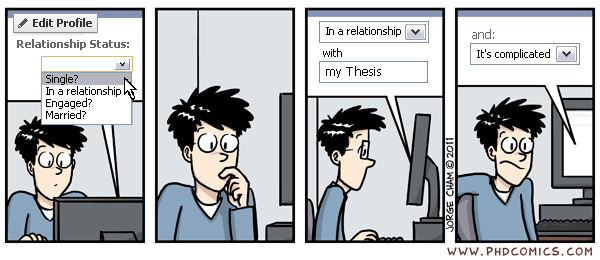
Myth 3: Grad students are bad at sports and look like “nerds” or “geeks”. Some of us might, most of us don’t. Chances are you cannot distinguish a Ph.D. student from a regular guy at the supermarket because guess what? We are all human! Appearances can be very deceiving. People like Bill Cosby, James Franco and Shaq O’Neal have obtained a Ph.D. and many others have attended grad school. Same goes for athletes. This is just another common stereotype that you shouldn’t believe, and help us break.
Myth 4: Doing a Ph.D. makes you proficient in everything. Not true, you can have a great deal of knowledge focused on a very specific area, but let’s face it, few of us are like Aristotle, who meddled in philosophy, math, biology, chemistry and astronomy to name a few. This is because knowledge has expanded so much that it becomes increasingly difficult to fully grasp and contribute to several disciplines at once. If you have a high education level, it does not make you a true know-it-all , so there is no need to live up to the expectation even if people treat you like one. (Which reminds me, people will expect you to know everything, and will mock you often if you don’t know the answer to a question they consider trivial. Just let it go, and tell them you will not fix their computer next time they ask).
Myth 5: You become arrogant and develop a huge ego. Arrogance is uncommon; we learn by making a lot of mistakes, we are valued because of our hypothesis. The better hypothesis and research questions you can come up with, the more experience you gain. This means that many times your hypos will not hold true, and you will take away valuable lessons from it. If you learn by making mistakes, you can’t be arrogant at the same time.
Myth 6: You are going to change the world! Yes, up to a certain extent, but don’t expect to invent a time machine or the AI system that will doom the world. As Google Scholar constantly reminds you every time you do a search: “Stand in the shoulder of giants” (a phrase used (but not attributed) by Newton). Things are done with team work and built upon the work of others. If you are at the tip of the iceberg and make a major breakthrough always remember that those who came before you were your stepping stones and got you to where you are now. Although these can be nice goals and I’m often bugged with the question of (seriously) if I could build Skynet or when is it going to happen, we often have more specific goals, which doesn’t necessarily make them less glorious.
Beware
Finally, a word of advice, a Ph.D. or a high level of education does not guarantee, nor does it provide common sense. This is something you get to develop on your own.
I hope that this rings true in the minds of whoever reads this. This is just from my experience as a MS and Ph.D. candidate in computer science, and should not be generalized to other majors, degrees or maybe even colleges. I tried to be as generic and unbiased as possible, but use it under your own risk. I’d also like to say that even when I have faced most of these circumstances, I am very happy with my mentors, my committee, my college, my research, my advisors and my department, so i hope no one takes offense! It’s part of the normal course of a graduate student’s life and those who have gone through it should understand this even better than I do.
If you need more serious guidance, here is a great essay from Phil Agre which covers some of my points from a more “professional” point of view. If you want to ask me a question leave me a comment or send me an email 🙂 .Good luck on your future endeavors!
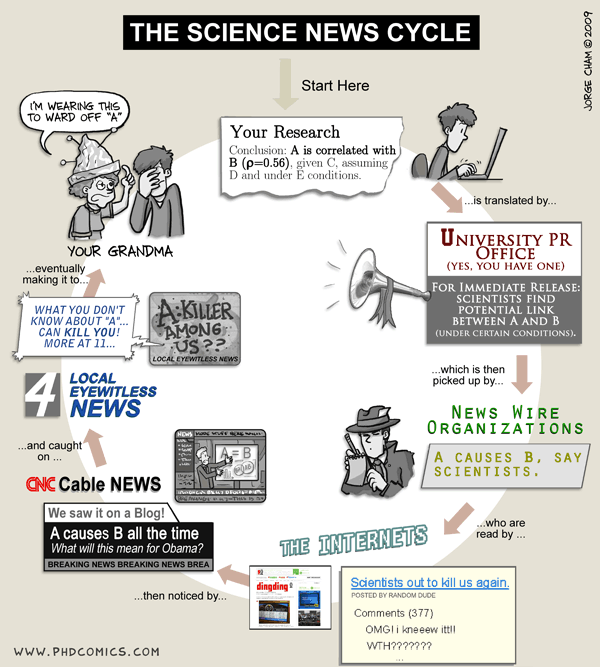
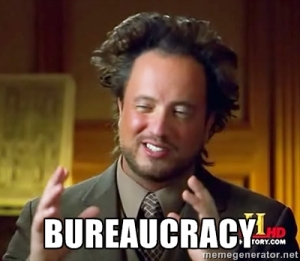

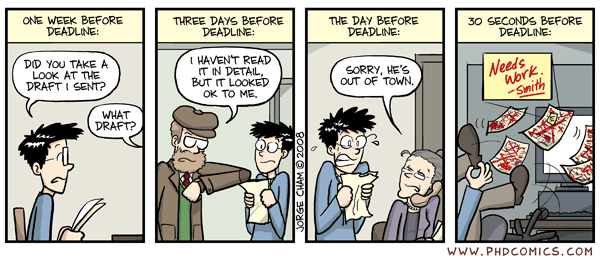


buena lectura bro me abrio el panorama
Great text, mate! Really love it and gonna share it! Greetings from a-sort-of-summerish Sweden 😉
it is very helpful,nice piece of writing.